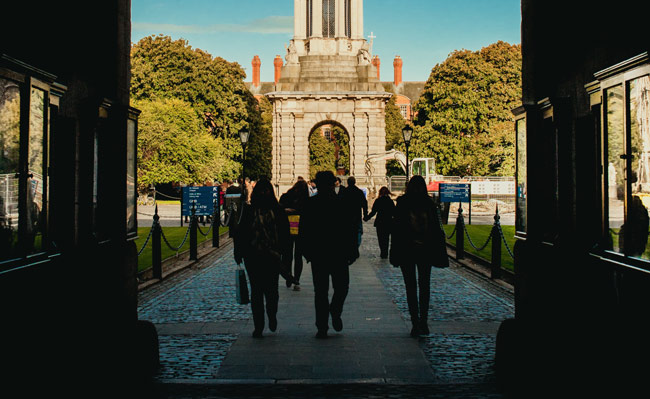In this year’s CAO offers, Trinity saw another increase, of four percent, in those putting the university down as their first preference. There was also a near four per cent increase on those applying from Northern Ireland.
The increase will be welcomed by a college that, in previous years, had seen its first preference figures lag behind other Irish colleges. In total, 8,278 students gave their first preference to Trinity this year, up from 7,965 last year, firmly reversing the trend.
This morning up to 3,403 students awoke to find a place offered to them by Trinity.
With a fifth of all CAO applicants – a total of 18,624 students – having the university on their list, this marks, again, another small increase in the numbers of students choosing Trinity at some position on their applications.
This increase in applicants from Northern Ireland, from 928 last year to 964 this year, are likely down to the uncertain years ahead for the UK as they negotiate a divorce from the EU. However, other factors have contributed to this interest from students. High student fees in the UK and initiatives coming from the south, including Trinity itself, have made it easier to apply to higher education institutions here.
Despite this increase in applications, only 262 offers are being made today to Northern Irish students, 20 more than 2016. Only 78 of the places offered last year were accepted.
This year also saw the introduction of a new points system for the Leaving Certificate, which saw decreases in points across the board, with STEM subjects, classics and English studies taking the biggest hits.
In a press statement, Vice-Provost Chris Morash welcomed the new system, calling it “ a better match between second and third level”. He continued: “This year we have seen a bigger pool of eligible applicants coming through the system. I see this as a first step to reforming education in Ireland, and look forward to continuing to find more effective ways for students to enter third level institutions in Ireland.”
Applicants applying to college through DARE and HEAR schemes increased, with 6,395 and 11,476 students in DARE and HEAR respectively up from 5,402 and 11,528 last year.
In a congratulatory message to students receiving their offers today, Morash recognised and applauded “the heroic effort that goes into achieving these results, not just for the students, but for their families as well”.







